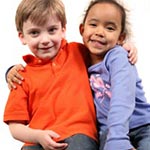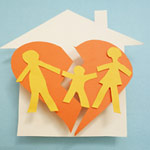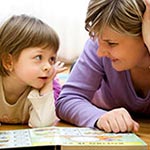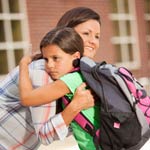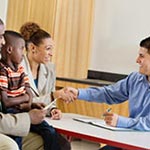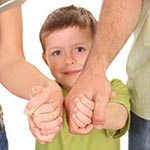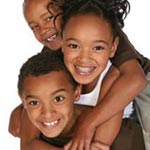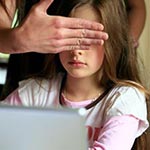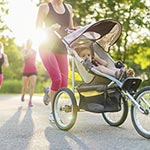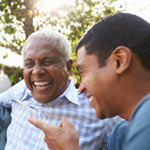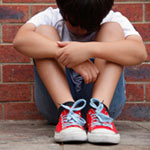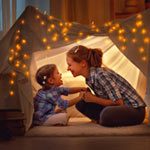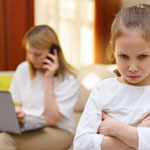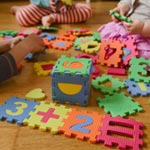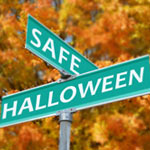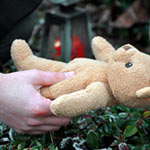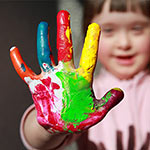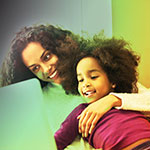8 Survival Skills Every Child Should Know

By Stacy Williams •
February 22, 2017
Kids are constantly learning which makes them constantly curious. Curiosity can sometimes lead to dangers, whether big or small. Adults know how to combat dangerous situations, but what about young kids? It’s easy to think of things like survival skills as something only adults should have, but kids can be prepared too. There are simple, basic survival skills parents and grandparents can teach their children and grandchildren to give them an advantage if they are ever in an unexpected, dangerous situation.
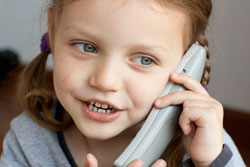
- Address And Phone Number
As soon as children begin to learn and repeat information, it’s important to teach them their address and phone number. A simple street address is usually all they will need to know. The phone number they memorize should be a parent’s cell phone or the phone that’s answered most. If your child is ever lost or separated from family, they can recite their address and phone number immediately. - How To Call 911 In An Emergency
In the case of an emergency, it’s important kids know exactly what to do. Teach them from a very early age how to dial 911 on a phone and explain it’s one way to always get help. Knowing those three simple numbers could mean the difference of life and death in an emergency. If something were to happen to a parent or sitter, a child can jump in and make a difference just by knowing how to dial 911. Keep it visual on a refrigerator for younger kids in case they need help remembering it. - What To Do If Lost
Give your children a plan in case they ever get lost. Teach them how to identify an adult, remain calm and remember their address and phone number as a surefire means of getting reconnected. - Stranger Danger
Most parents and grandparents start the dialogue of stranger danger very early on with their kids and with good reason. Kids should know how to identify the dangers of a stranger and what to do if ever approached by someone they don’t know. - What To Do In A Natural Disaster
Most regions of the country have seasons wherein weather-related disasters are always possible, like tornados in the Midwest or hurricanes in the Southeast. California can be afflicted by earthquakes on any given day, but the reality is that any part of the country can be stricken by wildfires, floods or a number of other natural disasters. If you live in a region where you deal with the more-predictable natural disasters, make sure your children know what to do. Teach them how to seek shelter and what precautions to take. Prepare them with knowledge so they too can remain calm and feel in control. FEMA has excellent resources for kids to help educate them on what to do in the case of a natural disaster. - Basic First Aid
Although calling 911 should always be a child’s first response in any kind of medical danger, it’s still wise for children to know a few first aid basics as well. Kids should know where a first aid kit is, what’s in it and what the items are used for. They can be taught how to control bleeding and what to do in the case of having a broken bone. - What To Do In A Fire
One of the basic survival skills for kids most often taught in school is fire safety. Make sure your kids know what to do if there is ever a fire. From the escape plan to the basics of stop, drop and roll, it’s imperative that kids know exactly what to do in the case of a fire. - Basic Navigation
Whereas your child doesn’t need to know how to navigate a GPS, it’s good to teach them some basic navigation skills in terms of their street and neighborhood. Identify markers that make their immediate surroundings and their neighborhood familiar. It’s good to do the same at school. Make sure they have a sense of directions for the parking lots and entrances in case they are ever separated from others and feel lost.
You might also be interested in...
-
 6 Things That Happen If You Drink Soda Everyday
6 Things That Happen If You Drink Soda Everyday
-
 8 Survival Skills Every Child Should Know
8 Survival Skills Every Child Should Know
-
 Children's Whole Life Insurance: Financial Benefits
Children's Whole Life Insurance: Financial Benefits
-
 Coparenting With An Ex
Coparenting With An Ex
-
 Dealing With A Teenage Daughter
Dealing With A Teenage Daughter
-
 Do Stay At Home Moms Need Life Insurance
Do Stay At Home Moms Need Life Insurance
-
 Four Effortless Ways to Be a Better Parent
Four Effortless Ways to Be a Better Parent
-
 Give Your Child a Financial Head Start
Give Your Child a Financial Head Start
-
 Top 5 Ways To Help Your Child Adjust To A New School
Top 5 Ways To Help Your Child Adjust To A New School
-
 How to Have a Successful Parent/Teacher Conference
How to Have a Successful Parent/Teacher Conference
-
 Keep Your Children Safe and Happy at Home
Keep Your Children Safe and Happy at Home
-
 Should You Get Life Insurance for Your Children
Should You Get Life Insurance for Your Children
-
 Should You Monitor Your Kids’ Online Activity?
Should You Monitor Your Kids’ Online Activity?
-
 Surprising Things New Parents Should Know
Surprising Things New Parents Should Know
-
 Teaching an Older Sibling to Help Care for a Younger One
Teaching an Older Sibling to Help Care for a Younger One
-
 Teaching Your Child Responsibility
Teaching Your Child Responsibility
-
 The Importance of Whole Life Insurance
The Importance of Whole Life Insurance
-
 9 Life Hacks For Busy Moms
9 Life Hacks For Busy Moms
-
 Why Adults Need A Timeout Too
Why Adults Need A Timeout Too
-
 New Tools To Keep Teen Drivers Safe
New Tools To Keep Teen Drivers Safe
-
 Sneaky Ways To Trick Picky Eaters
Sneaky Ways To Trick Picky Eaters
-
 Dad Wisdom You Can’t Live Without
Dad Wisdom You Can’t Live Without
-
 What Parents Should Know About Snapchat
What Parents Should Know About Snapchat
-
 Top 12 Most Nutritious Food List
Top 12 Most Nutritious Food List
-
 How Bullying Damages A Child’s Health
How Bullying Damages A Child’s Health
-
 7 Tips for Balancing Life as a Working Single Parent
7 Tips for Balancing Life as a Working Single Parent
-
 9 Tips on Digital Devices for Parents and Kids
9 Tips on Digital Devices for Parents and Kids
-
 How To Choose The Right Daycare
How To Choose The Right Daycare
-
 Halloween Safety Every Parent Should Know
Halloween Safety Every Parent Should Know
-
 The Pros and Cons of Juvenile Life Insurance
The Pros and Cons of Juvenile Life Insurance
-
 Options for Getting Life Insurance for a Minor with a Pre-existing Condition
Options for Getting Life Insurance for a Minor with a Pre-existing Condition
-
 Pregnancy and Life Insurance: What you need to know about getting coverage
Pregnancy and Life Insurance: What you need to know about getting coverage
-
 Life Insurance on Children: What You Need to Know
Life Insurance on Children: What You Need to Know

 Insurance products are available in New York from
Insurance products are available in New York from  Insurance products are available in your state from
Insurance products are available in your state from 







